Australia halts New Zealand travel bubble for 72 hours
From CNN’s Sophie Jeong
The Australian government has suspended quarantine-free travel for New Zealanders arriving in Australia for a minimum of 72 hours, after a South African variant of Covid-19 was detected in a woman after 14 days of quarantine in New Zealand.
Travelers coming from New Zealand to Australia in the next 72 hours will be required to enter mandatory hotel quarantine for up to 14 days on arrival or other such arrangements in individual states and territories, according to a media release from Australian Health Minister Greg Hunt.
In addition, anyone who arrived in Australia from New Zealand on or since January 14 is asked to get tested and remain in isolation until they receive a negative test. This change comes into effect immediately, the release said.
The move comes after New Zealand said on Monday that a woman who tested positive for Covid-19 after leaving quarantine in New Zealand had been infected with the South African variant.
Since October, travelers coming from New Zealand did not need to complete a 14-day mandatory quarantine if they have been in New Zealand for 14 days prior to travel.
New Zealand’s new Covid-19 case likely came from a returned traveler in hotel, health officials say
From CNN’s Sophie Jeong

A woman in New Zealand who tested positive for Covid-19 after leaving quarantine likely contracted it from another returned traveler on the same floor in her quarantine hotel, according to the country’s health officials.
New Zealand’s Ministry of Health confirmed to CNN in an email that the case is “not due to community transmission.”
The 56-year-old woman recently returned from Europe and underwent 14 days of quarantine at the Pullman Hotel in Auckland. She returned two negative tests during her stay before leaving quarantine on January 13, according to a media release from New Zealand’s Ministry of Health Sunday. She later developed symptoms and tested positive for the virus.
“The source of infection is highly likely to be a fellow returnee during the person’s stay at the Pullman hotel,” New Zealand’s Minister for Covid-19 Response Chris Hipkins said Monday. “The two people occupied rooms in close proximity to each other on the same floor of the Pullman hotel.”
Genome sequencing results of the woman and another guest who was in the quarantine facility are identical, according to a media release from New Zealand’s Ministry of Health Monday. Early information suggests the transmission occurred between January 9 and 13, the release said.
The ministry added that the woman had contracted the South African variant. She has 15 close contacts, who are all self-isolating and have been tested.
In Japan, more than 18,000 Covid-19 patients are waiting for a hospital bed or isolation center place
From CNN’s Junko Ogura and Selina Wang in Tokyo
At least 18,111 people who have tested positive for Covid-19 in Japan are waiting for a hospital bed or space at isolation centers in the 11 prefectures in the country under a state of emergency, according to local health officials.
CNN spoke to health officials in each prefecture where the virus is most prevalent.
Coronavirus cases in Japan have surged drastically in the past two months. As of Sunday, the country has reported a total of 360,661 infections, a 74% increase from a month ago and 165% increase from two months ago.
Satoshi Hori, an infectious disease expert at Juntendo University, told CNN that high-risk groups — such as the elderly and those displaying severe symptoms — should be admitted to hospital upon receiving a positive result. People who develop mild symptoms after contracting Covid-19 are sent to designated facilities for isolation, Hori said.
Overwhelming surge: Prefectures are in charge of local protocols of where and when to move people who test positive for Covid-19. The 18,111 patients reported Sunday includes people with mild or no symptoms who are waiting for space in an isolation center.
Among the 11 prefectures under a state of emergency, Tokyo has the highest number of infected people on the waiting list, having jumped nearly five times from December 19 to more than 7,500 people on Sunday, according to a Kyodo News Agency report Sunday. Meanwhile, the western prefecture of Hyogo has seen its number increase almost six times to at least 727 people.
Japan’s Ministry of Health declined to give CNN comment on the number of people waiting for hospital or isolation accommodation and said it does not release statistics on those cases.
This post was updated with the latest available figures.
A strict lockdown in northeast China has left residents short of food and medicine
From CNN’s Beijing bureau
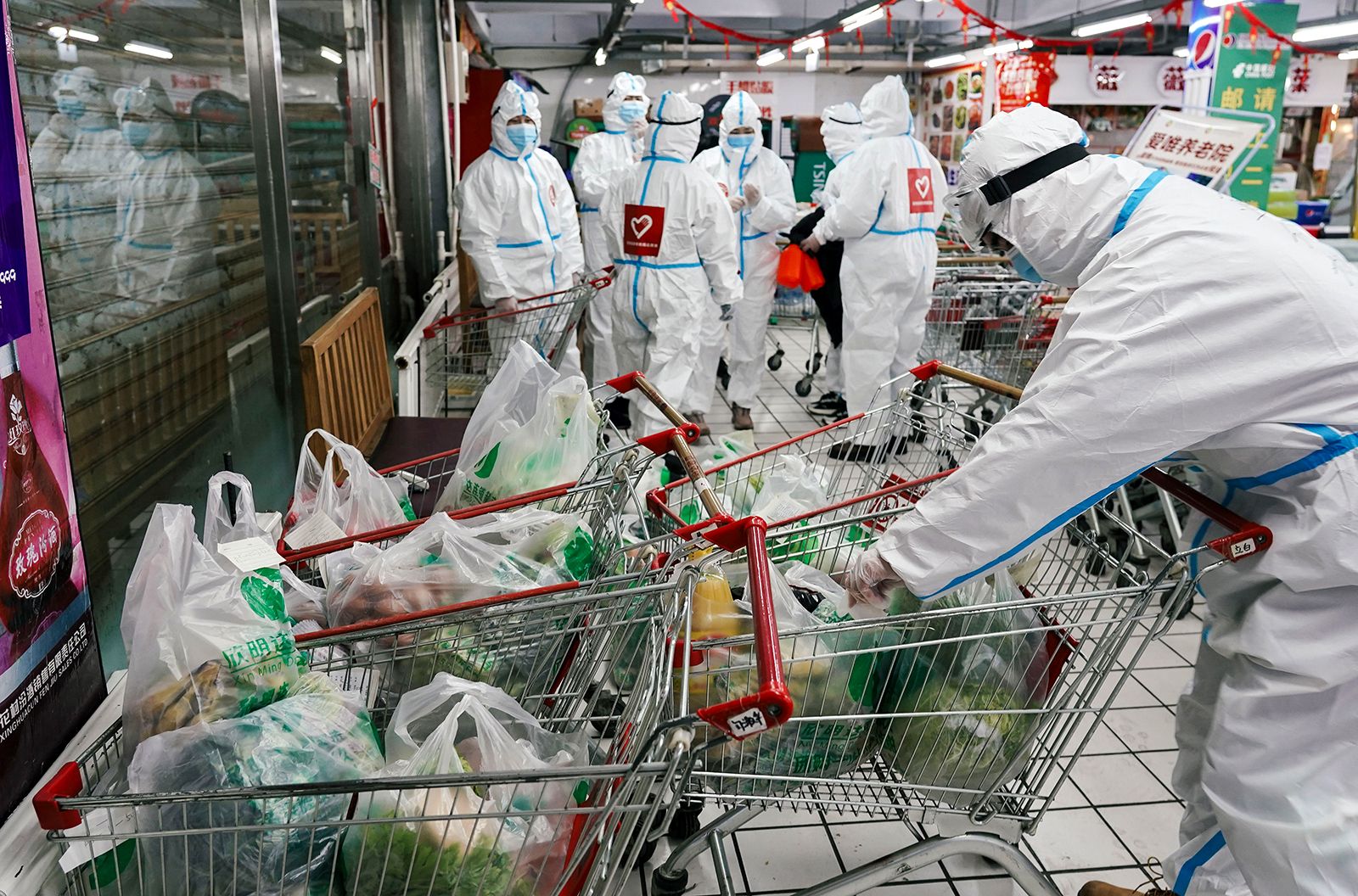
Residents of a city in northeast China have taken to social media to complain that a stringent coronavirus lockdown has left them short of food and medicine, triggering an online uproar and an apology from local officials.
Tonghua, a city of about 2 million in Jilin province, has been locked down since January 18 amid rising Covid-19 infections. All flights, trains, buses and taxis have been suspended, and residents barred from leaving their homes.
Under the restrictions, people must order daily necessities online, and have them delivered to their residential compounds by volunteers, according to the municipal government.
However, Tonghua residents complained on Chinese social media last week that there had been a delay in deliveries, causing a shortage of food, medicine, and infant milk powder.
The backlash: The residents’ posts ignited a wave of criticism against the Tonghua government, with some accusing local officials of disregard for people’s livelihood in order to meet epidemic control targets.
Following the backlash, city officials admitted Sunday that the delivery of daily necessities is “untimely and unavailable” to some residents, citing a shortage of manpower.
“The municipal party committee and the municipal government express their sincere apologies,” Deputy Mayor Jiang Haiyan said at a news conference.
On Sunday night, some residents posted photos online of vegetable packages they received, but many others said they were still waiting.
The Tonghua government said Monday that vegetables had been delivered to nearly 67,000 households, and more than 7,000 officials and volunteers would continue to distribute food to the rest of the residents.
Stark contrast: Some social media users pointed to the disparities between the harsh lockdown measures in Tonghua and the more humane quarantine policies in some major cities.
In Shanghai, the government was lauded for allowing residents of “medium-risk” neighborhoods to bring their pets to government-designated hotels for quarantine.
The Beijing municipal government said it would allow each household to leave one family member at home to take care of pets if they are ordered to go into quarantine.
US reports more than 130,000 new Covid-19 cases
From CNN’s Alta Spells in Atlanta
The United States reported 130,485 new coronavirus infections and 1,769 virus-related fatalities on Sunday, according to Johns Hopkins University data.
According to JHU’s tally, the nationwide totals now stand at 25,124,954 cases, including 419,209 deaths.
The totals include cases from all 50 states, the District of Columbia and other US territories, as well as repatriated cases.
Vaccine numbers: At least 41,411,550 vaccine doses have been distributed and at least 21,848,655 shots administered, according to the US Centers for Disease Control and Prevention.
CNN is tracking US cases here.
AstraZeneca responds to EU’s concerns over lower vaccine deliveries
From CNN’s Michael Nedelman in New York, Martin Goillandeau and James Frater in London
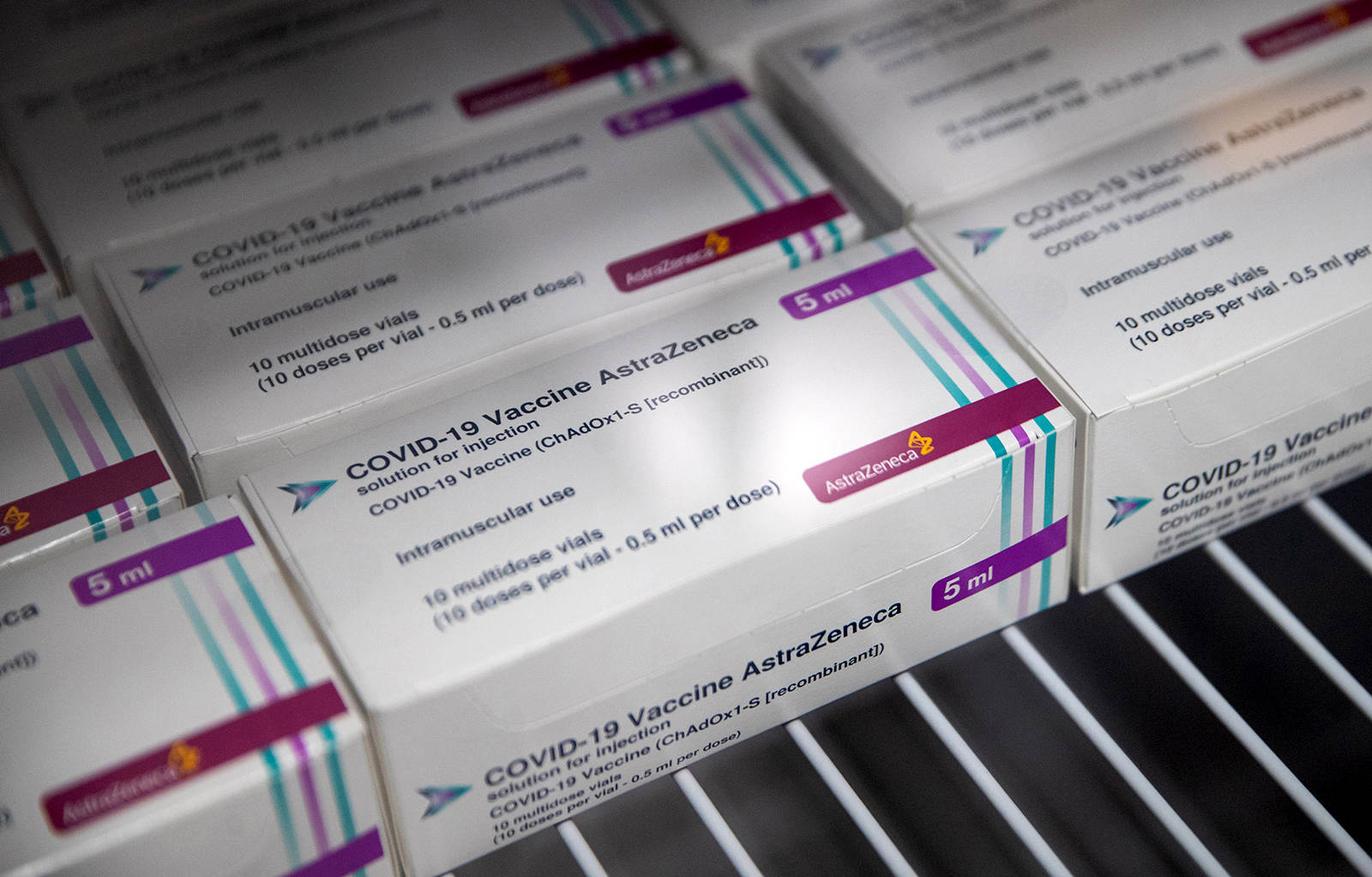
Reduced yields in the European supply chain are the reason that lower volumes of AstraZeneca’s coronavirus vaccine will initially be delivered to EU member states, according to a spokesperson for the drugmaker.
The European Union expressed its “deep dissatisfaction” on Friday, after being informed by AstraZeneca that vaccine deliveries to member states — pending authorization — would not arrive before the end of the first quarter of 2021, as originally forecast.
An AstraZeneca spokesperson told CNN that reduced yields at a manufacturing site in the European supply chain have caused the lower volumes of initial deliveries, but there is no schedule delay to the start of shipments once its vaccine receives approval in Europe.
“We will be supplying tens of millions of doses in February and March to the European Union, as we continue to ramp up production volumes,” the spokesperson said, without offering details on how much lower the initial volume of vaccine supply would be.
EU’s expectations: The EU was expecting 100 million doses of the AstraZeneca vaccine in the first quarter of this year. The European Medicines Agency (EMA) received an application for conditional marketing authorization for the vaccine developed by AstraZeneca and the University of Oxford on January 12. The decision on granting marketing authorization could be given by January 29.
“The European Commission will continue to insist with AstraZeneca on measures to increase predictability and stability of deliveries, and acceleration of the distribution of doses,” European Commissioner for Health and Food Safety Stella Kyriakides tweeted Friday.
China reports 80 new Covid-19 cases
From CNN’s Beijing bureau
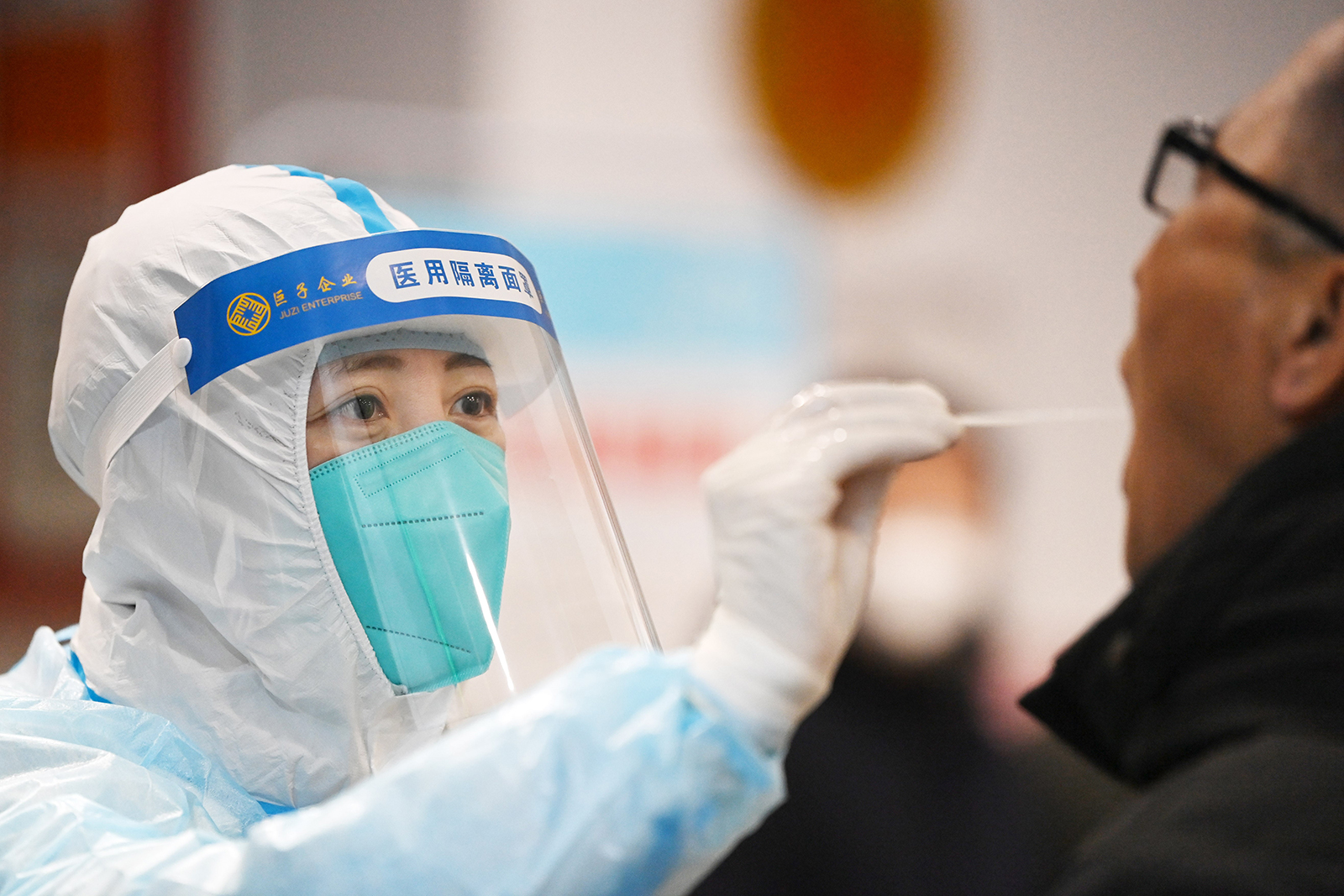
China’s National Health Commission (NHC) detected 80 new coronavirus cases on Sunday — 65 of them transmitted locally, according to a Monday statement.
Most of the cases were identified in the north of the country, where some provinces have in recent weeks been battling to contain localized outbreaks of the virus
Some 29 cases were found in China’s northernmost province, Heilongjiang, while 19 were detected in Hebei province, which surrounds the capital, Beijing. The northern province of Jilin reported 12 cases.
Quarantine center: Nangong, a city in Hebei, has built 1,500 temporary quarantine treatment rooms following the emergence of coronavirus clusters in the northern province.
A further 6,500 rooms will be built in the coming days, according to the state-owned China News Service.
The single-occupancy rooms are equipped with their own heaters, toilets, showers, and other amenities, the official Xinhua news agency reported.
Wuhan, one year on: On Saturday, China marked the anniversary of the start of a 76-day lockdown in the central city of Wuhan, where the virus was first detected in late 2019.
The case numbers in Wuhan today are zero, which is a stark contrast to January 25, 2020, when the city reported 618 infections and 45 deaths.
A year from lockdown, Wuhan returns to normal life, but still haunted by emotional scars
From CNN’s David Culver and Nectar Gan
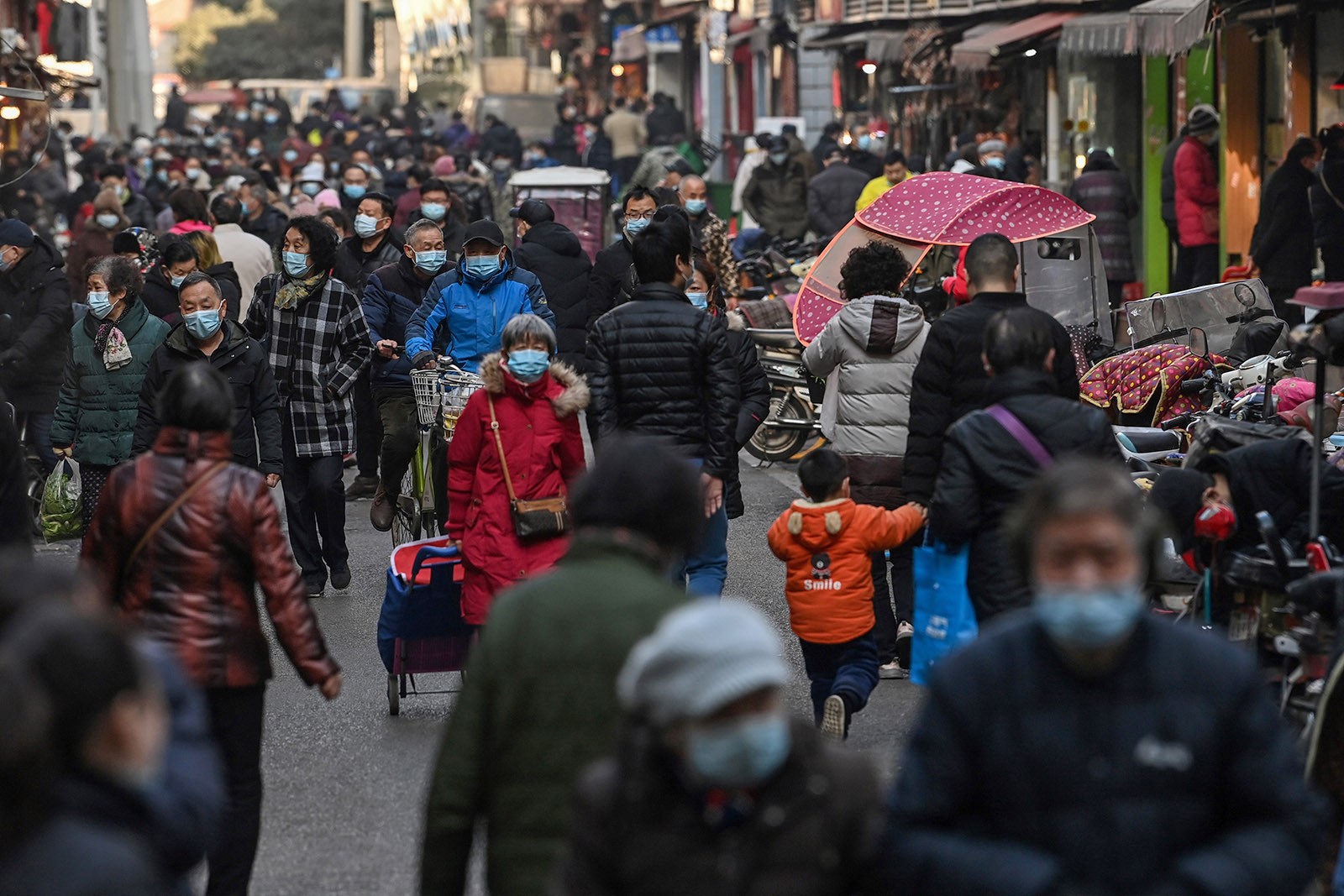
On the surface, Wuhan bustles like a city that has never known a paralyzing 76-day lockdown.
At dawn, market vendors busily unload fresh fruits and vegetables. Office workers fill popular eateries during lunch break. As dusk falls, elderly couples descend on the city’s parks, practicing dance moves by the Yangtze River. Red lanterns have been erected around the city in anticipation of the Lunar New Year celebrations.
A year has passed since the central Chinese city of 11 million people was placed under the world’s first coronavirus lockdown on January 23. At least 3,869 Wuhan residents eventually died from the virus, which went on to claim more than 2 million lives around the globe.
The world was stunned when flights, trains and buses leaving Wuhan were canceled, highways were blocked and people were ordered to stay in their homes, relying on officials and volunteers for daily necessities. Initially, it was difficult for patients, families and even some healthcare workers to get to the hospital.
But the Chinese government has since heralded those drastic steps as crucial to curbing the initial outbreak, and similar measures have now been enforced in countries around the world — with some cities outside China undergoing multiple lockdowns.
In that context, Wuhan has become a success story in taming the virus. It has not reported a local coronavirus infection for months.
On December 31, as millions of people in other countries spent New Year’s Eve in the confinement of another lockdown, Wuhan’s residents packed glittering streets to celebrate the arrival of 2021 with a midnight countdown.
Today, residents speak proudly of the resilience and strength of their city, and the efforts they made to ward off Covid-19.
But the severe measures also came at a huge personal cost to residents, and despite the apparent return to normal life, deep emotional scars haunt the city.
Some residents who lost loved ones to the virus are still living in grief, angry at the government for its early missteps in preventing people from knowing facts that could have saved lives.
Read the full story:
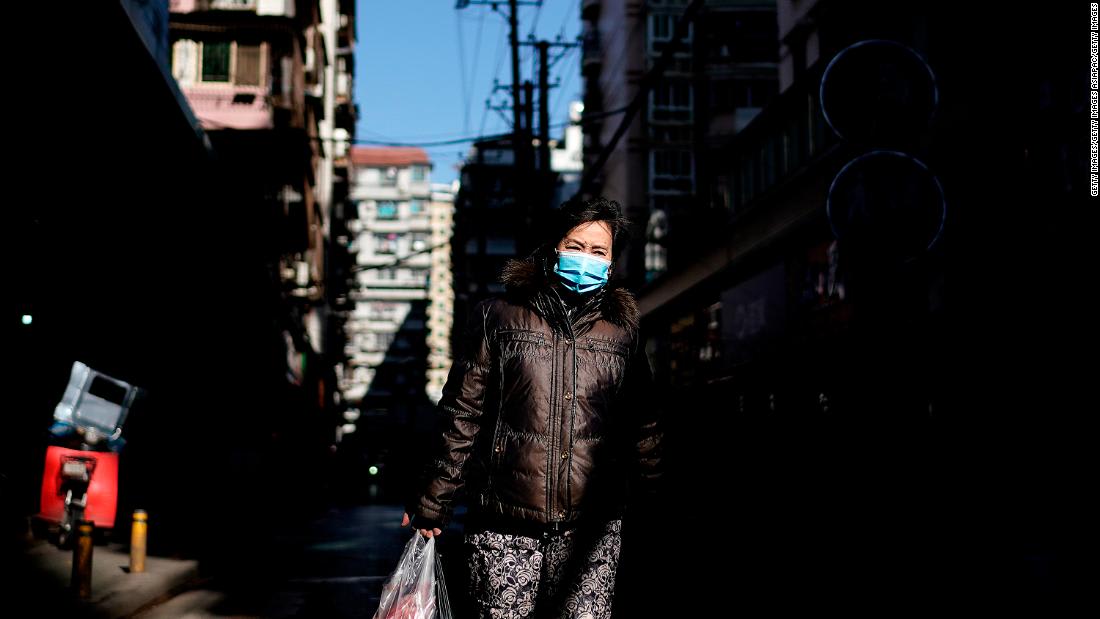
Fauci reveals Trump administration attempts to discredit him and threats on his life
From CNN Health’s Naomi Thomas
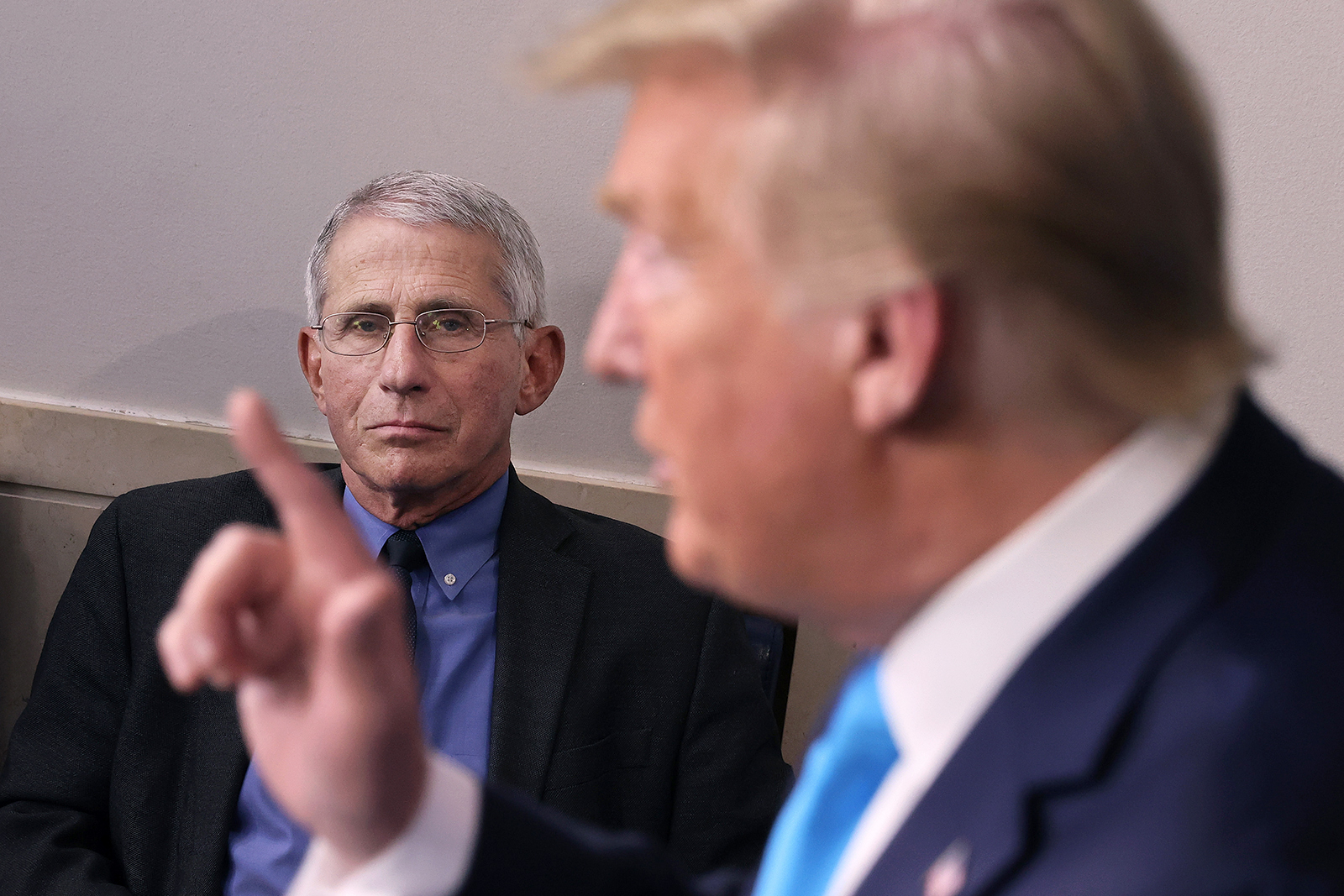
Dr. Anthony Fauci opened up about his experience working under the Trump administration, his relationship with the former president and threats to his personal safety, in a wide-ranging interview with The New York Times published Sunday.
As cases rapidly escalated in the Northeast, the former president had “almost a reflex response” to try to minimize the situation, Fauci said.
Fauci, director of the National Institute of Allergy and Infectious Diseases, said that he was concerned about who Trump was getting his information from. He said Trump based his assessment of coronavirus treatments on anecdotes rather than data from clinical trials.
“That’s when my anxiety started to escalate,” Fauci said.
When leadership of the White House coronavirus task force changed last February, into the hands of the White House, the situation turned from “the standard kind of scientifically based, public-health-based meetings,” to “the anecdotally driven situations, the minimization, the President surrounding himself with people saying things that didn’t make any scientific sense,” Fauci said.
When Fauci contradicted Trump’s misinformation, he said the White House response started to become “somewhat nefarious – namely, allowing Peter Navarro to write an editorial in USA Today saying I’m wrong on most of the things I say. Or to have the White House press office send out a detailed list of things I said that turned out to be not true.”
Fauci said that Trump even called him personally to ask why he wasn’t being more positive about the pandemic.
Fauci said he and his family received death threats, starting in the spring. He said the death threats to his family upset him more than anything else. He shared an experience where he received a letter containing white powder, which turned out to be nothing. He recalled the moment, saying:
“My wife and my children were more disturbed than I was. I looked at it somewhat fatalistically. It had to be one of three things: A hoax. Or anthrax, which meant I’d have to go on Cipro for a month. Or if it was ricin, I was dead, so bye-bye.”
